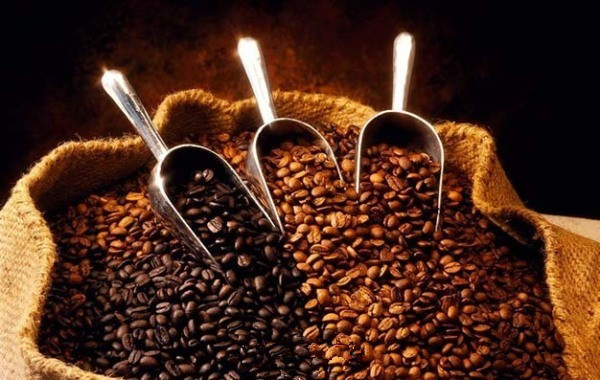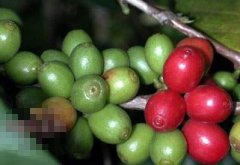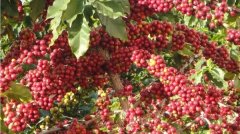Basic knowledge of Fine Coffee Wild Coffee in Hawaii

The phenomenon of the dominance of traditional famous coffee was finally broken in one day. For several consecutive years since 1995, a product extracted from wild coffee beans from Hawaii in the United States has won the championship in the local and Tokyo grading meetings, and has been rated above AA++, and its quality indicators and prices have also exceeded that of Blue Mountain. In two or three years, it has become the "lady of the world coffee family".
This is the most beautiful coffee bean in the world, with full grains and bright luster. Because it grows on the volcanoes of Hawaii, the unique volcanic climate brews its unique fragrance. Critics agree that it is moist, mellow, full-bodied, full-bodied and has a long finish. Most rarely, it has a blend of wine, fruit and spice, as fascinating as the colorful colors of this volcanic archipelago in the Pacific Ocean.
Since then, wild coffee from countries such as the Philippines, Indonesia and Kenya have also appeared in the market and gradually become known to the world. Wild coffee, natural coffee and native coffee have temporarily become new terms in the coffee industry, with prices reaching an astonishing level of $250 and 50 grams.
For coffee gluttons who are keen on curiosity and the pursuit of good taste, tasting a cup of wild coffee has become a dream.
Wild coffee grows mostly in the mountains above 1500 meters above sea level, completely depends on natural conditions, and only depends on mountain springs and Rain Water. It matures slowly, but because of its full growth, it does not have the bitterness of the varieties usually cultivated in the field. However, it is extremely difficult to collect wild coffee. Mountain people need to set foot in the mountains and even domesticate goats to help find them and pick them back to the workshop for processing before the berries are ripe and fall. In the early years, mountain people collected wild coffee and only picked up ripe fruit that fell to the ground, which greatly reduced the quality and taste.
Important Notice :
前街咖啡 FrontStreet Coffee has moved to new addredd:
FrontStreet Coffee Address: 315,Donghua East Road,GuangZhou
Tel:020 38364473
- Prev

A variety of coffee bred artificially by Kaduai.
Kaduai is an artificial hybrid of Kaddura and Mondu Novo. Kaduai has a good ability to resist natural disasters, especially wind and rain. Kaduai tree species are relatively low, compared with other coffee trees, the fruit of Kaduai is stronger and harder to pick. The fruit is both red and yellow. So far, it has not been found that yellow fruit is better than red fruit.
- Next

Costa Rican La Minita coffee boutique coffee beans
La minita Manor plants and selects coffee for its customers in a careful and responsible spirit. After screening and elimination from a total of 832000 pounds of raw beans, it finally selects 210000 pounds of the best quality coffee beans for consumers. This means that in this process, La minita only selects about 25% of the raw coffee beans. The whole operation is done entirely through manpower, at a cost of more than 30%.
Related
- Beginners will see the "Coffee pull flower" guide!
- What is the difference between ice blog purified milk and ordinary milk coffee?
- Why is the Philippines the largest producer of crops in Liberia?
- For coffee extraction, should the fine powder be retained?
- How does extracted espresso fill pressed powder? How much strength does it take to press the powder?
- How to make jasmine cold extract coffee? Is the jasmine + latte good?
- Will this little toy really make the coffee taste better? How does Lily Drip affect coffee extraction?
- Will the action of slapping the filter cup also affect coffee extraction?
- What's the difference between powder-to-water ratio and powder-to-liquid ratio?
- What is the Ethiopian local species? What does it have to do with Heirloom native species?

